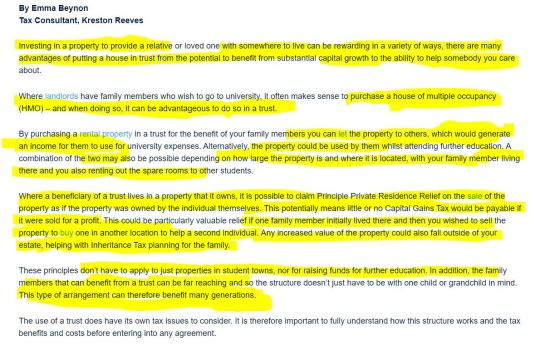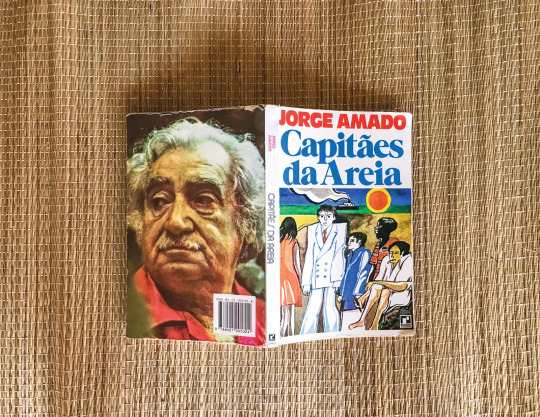#Abusu
Explore tagged Tumblr posts
Text
God I'm SO normal about Clay Puppington
#i am in fact NOT NORMAL#why is my taste in men abusuive/insane douchebag narcissists?#its the trauma#and daddy issues
1 note
·
View note
Text
I try to avoid anti-percabeth posts because defensiveness is not a good look on me and obviously no one is going around saying that the MOA judo flip was Rick’s best writing choice but also like?
Oh no? Did the character who canonically isn’t very good at handling her feelings react poorly to being overwhelmed with emotions? Was that a little cringe? Does that make her an abusuer? Should we call the police? Grow up.
#god forbid women do anything#some of yall…#let’s use the context clues and see how perch felt about it#that’s all tho I can’t keep going#I could tho#pjo#percabeth#annabeth chase#percy jackson#pjo hoo toa#mark of athena#guys I can’t help it it’s my Autistic sense of justice
2K notes
·
View notes
Note
What do you think of the term "personal property" as distinct from "private property?" I'm not sure how I feel about it because on one hand the people pushing for it often seem to be petty-burgeois opportunists who insist on the continuation of homeowning and such during socialism, but on the other hand some of the people opposing it seem to have read what Marx said about how all property borders will disappear on higher-stage communism and interpreted it as "REAL communists want to confiscate your toothbrush, which is why the USSR wasn't REAL communism."
I mean, if you want to read Marx, the Communist Manifesto is right there.
In this sense, the theory of the Communists may be summed up in the single sentence: Abolition of private property. We Communists have been reproached with the desire of abolishing the right of personally acquiring property as the fruit of a man’s own labour, which property is alleged to be the groundwork of all personal freedom, activity and independence. Hard-won, self-acquired, self-earned property! Do you mean the property of petty artisan and of the small peasant, a form of property that preceded the bourgeois form? There is no need to abolish that; the development of industry has to a great extent already destroyed it, and is still destroying it daily. Or do you mean the modern bourgeois private property? But does wage-labour create any property for the labourer? Not a bit. It creates capital, i.e., that kind of property which exploits wage-labour, and which cannot increase except upon condition of begetting a new supply of wage-labour for fresh exploitation. Property, in its present form, is based on the antagonism of capital and wage labour. Let us examine both sides of this antagonism. To be a capitalist, is to have not only a purely personal, but a social status in production. Capital is a collective product, and only by the united action of many members, nay, in the last resort, only by the united action of all members of society, can it be set in motion. Capital is therefore not only personal; it is a social power. When, therefore, capital is converted into common property, into the property of all members of society, personal property is not thereby transformed into social property. It is only the social character of the property that is changed. It loses its class character.
What does it mean to own a home? Capitalism conflates home ownership with land ownership and with private ownership of the means of production. To the capitalists and their apologists, there is no difference between any of these, all of these should be commodified and treated the same under the law.
Is living in a home and being secure in your right to live in a home enough to own it? The capitalist would say no. Common law traditionally assigns three fundamental rights necessary for private ownership, referred to in the Latin as usus, fructus, and abusus. That is, the right to use it, the right to profit from it, and the right to abuse it.
To the capitalist, if you cannot rent your house out for profit, you do not own it. To the capitalist, if you cannot dismantle the house and sell it for scrap, you do not own it. If these so-called fundamental rights are abridged, then suddenly homeownership becomes impossible in the mind of a capitalist.
When it comes to land or homes, communism does not grant individuals the rights of fructus or abusus. Communism recognizes that these things have an existence beyond the individual, that though an individual may use them for a period, eventually they will be used by someone else. To continue the privatization of homes or land would be to stifle collectivization and maintain a sense of bourgeois individualism that communism should instead seek to eliminate.
To nationalise the land, in order to let it out in small plots to individuals or working men's societies, would, under a middle-class government, only engender a reckless competition among themselves and thus result in a progressive increase of "Rent" which, in its turn, would afford new facilities to the appropriators of feeding upon the producers. [...] I say on the contrary; the social movement will lead to this decision that the land can but be owned by the nation itself. To give up the soil to the hands of associated rural labourers, would be to surrender society to one exclusive class of producers. The nationalisation of land will work a complete change in the relations between labour and capital, and finally, do away with the capitalist form of production, whether industrial or rural. Then class distinctions and privileges will disappear together with the economical basis upon which they rest. To live on other people's labour will become a thing of the past. There will be no longer any government or state power, distinct from society itself! Agriculture, mining, manufacture, in one word, all branches of production, will gradually be organised in the most adequate manner. National centralisation of the means of production will become the national basis of a society composed of associations of free and equal producers, carrying on the social business on a common and rational plan.
(Marx, The Nationalization of the Land, 1872)
The distortion of communistic abolition of property into such a complete dissolution of any and all forms of ownership no matter how personal has been around since Marx's own time. As he remarked in The German Ideology, when faced with Stirner's egoistic criticisms of communism:
When the narrow-minded bourgeois says to the communists: by abolishing property, i.e., my existence as a capitalist, as a landed proprietor, as a factory-owner, and your existence as workers, you abolish my individuality and your own; by making it impossible for me to exploit you, the workers, to rake in my profit, interest or rent, you make it impossible for me to exist as an individual. — When, therefore, the bourgeois tells the communists: by abolishing my existence as a bourgeois, you abolish my existence as an individual; when thus he identifies himself as a bourgeois with himself as an individual, one must, at least, recognise his frankness and shamelessness. For the bourgeois it is actually the case, he believes himself to be an individual only insofar as he is a bourgeois. But when the theoreticians of the bourgeoisie come forward and give a general expression to this assertion, when they equate the bourgeois’s property with individuality in theory as well and want to give a logical justification for this equation, then this nonsense begins to become solemn and holy. Above “Stirner” refuted the communist abolition of private property by first transforming private property into “having” and then declaring the verb “to have” an indispensable word, an eternal truth, because even in communist society it could happen that Stirner will “have” a stomach-ache. In exactly the same way here his arguments regarding the impossibility of abolishing private property depend on his transforming private property into the concept of property, on exploiting the etymological connection between the words Eigentum and eigen and declaring the word eigen an eternal truth, because even under the communist system it could happen that a stomach-ache will be eigen to him. All this theoretical nonsense, which seeks refuge in etymology, would be impossible if the actual private property that the communists want to abolish had not been transformed into the abstract notion of “property”. This transformation, on the one hand, saves one the trouble of having to say anything, or even merely to know anything, about actual private property and, on the other hand, makes it easy to discover a contradiction in communism, since after the abolition of (actual) property it is, of course, easy to discover all sorts of things in communism which can be included in the concept “property”. In reality, of course, the situation is just the reverse. In reality I possess private property only insofar as I have something vendible, whereas what is peculiar to me [meine Eigenheit] may not be vendible at all. My frock-coat is private property for me only so long as I can barter, pawn or sell it, so long [as it] is [marketable]. If it loses that feature, if it becomes tattered, it can still have a number of features which make it valuable for me, it may even become a feature of me and turn me into a tatterdemalion. But no economist would think of classing it as my private property, since it does not enable me to command any, even the smallest, amount of other people’s labour. A lawyer, an ideologist of private property, could perhaps still indulge in such twaddle.
And to head off any notion that Marx had suddenly changed his mind at some point later in life, that the events of Paris or some other event might have convinced him that personal property should be abolished at "higher-stage" communism, here is Engels in Anti-Duhring explaining clearly what Marx's thoughts were on the subject:
Marx says: “It is the negation of negation. This re-establishes individual property, but on the basis of the acquisitions of the capitalist era, i.e., on co-operation of free workers and their possession in common of the land and of the means of production produced by labour. The transformation of scattered private property, arising from individual labour, into capitalist private property is, naturally, a process, incomparably more protracted, arduous, and difficult, than the transformation of capitalistic private property, already practically resting on socialised production, into socialised property.” [K. Marx, Das Kapital, p. 793.] That is all. The state of things brought about by the expropriation of the expropriators is therefore characterised as the re-establishment of individual property, but on the basis of the social ownership of the land and of the means of production produced by labour itself. To anyone who understands plain talk this means that social ownership extends to the land and the other means of production, and individual ownership to the products, that is, the articles of consumption. And in order to make the matter comprehensible even to children of six, Marx assumes on page 56 “a community of free individuals, carrying on their work with the means of production in common, in which the labour-power of all the different individuals is consciously applied as the combined labour-power of the community”, that is, a society organised on a socialist basis; and he continues: “The total product of our community is a social product. One portion serves as fresh means of production and remains social. But another portion is consumed by the members as means of subsistence. A distribution of this portion amongst them is consequently necessary.” And surely that is clear enough even for Herr Dühring, in spite of his having Hegel on his brain. The property which is at once both individual and social, this confusing hybrid, this nonsense which necessarily springs from Hegelian dialectics, this nebulous world, this profound dialectical enigma, which Marx leaves his adepts to solve for themselves — is yet another free creation and imagination on the part of Herr Dühring.
There is no such "disappearance of property borders" in Marx's communism. At no stage of communism does Marx ever prescribe anything of the sort.
Private property, the social property that capitalism has already socialized by requiring the collective labor of the working class in order to maintain and make productive, will be expropriated from the capitalists and nationalized by the proletarian state to become the collective property of the working class.
Personal property, that portion of the produce of society that can be used only by individuals and that has no reason at all to be shared, will remain personal. You will not have to pass your plate around so that everyone can take a bite out of your food. You will not have to wear hand-me-down clothing. And you will not have to share your toothbrush.
58 notes
·
View notes
Text
In property we trust
A recycled Anon from Mordor (¿Quieres un chicle? ) sent this pearl to @bat-cat-reader :

What a gargantuan twat, this one. I am howling with glee.
You do not buy a house under a trustee, you fool. You either sign a Declaration of Trust when you buy a new property OR you put a house you bought in a trust, for crying out loud. These are two slightly different situations, but both point out towards the absence of normality.
First situation: you sign a Declaration of Trust when you buy that house. The person or company who paid the money (always for tax reasons) is the settlor and you are the trustee(s) who sign the document:
To cut the story short, I found this very clear article, explaining everything better than I could at almost 1 AM local time (https://www.elitelawsolicitors.co.uk/declaration-of-trust-for-property/):

You basically buy a property like you would buy shares in a firm. You are business partners of sorts, because there is no prior cohabitation agreement between you and you want to be clear about how you would split the money between the two (or more) of you, if you sell that house for a benefit.
Why would you do it? IF THEY DID IT.
First reason: you are not married.

I am not going to discuss this. I am just leaving it here, for reference. You are free to make up your mind. It is my professional duty to explain, though, that this is the most logical and frequent reason you would choose to sign this document.
Second reason: the 'partner' has an abysmal credit history and is NOT solvable

Therefore, that person is NOT on your mortgage, simply because I doubt the bank would enter in such a financial arrangement with you. Remember my Legal Anon? I explained that she did not, by design, include McSideburns into the ownership paperwork for Cleveden Drive. Now it all makes sense. I believe that this is the reason why they signed a Declaration of Trust. But this is my opinion and I do not force anyone to join me.
Third reason: if something goes awry, the partner can prove he/she has a right to some of the sale's benefits, while the major investor has his/her investment safely protected, too

Why would you sign a Declaration of Trust to "protect yourself against any disagreements and misunderstandings that may arise later down the line" if your Remarkable Weekend was, what, four years ago? Déjà?
The above questions should be construed as rhetoric.
Second situation: you put a house you bought yourself (C) and with your money exclusively, under a trust benefiting McSideburns. For example.
This is the situation I alluded in the comment thread under @bat-cat-reader's post. For reference, the wee legal article is here: https://www.leaders.co.uk/advice/why-buy-a-property-via-a-trust
Now, before I let my Magic Highlighter do its tricks, let me explain something really quick.
In Roman Law (and also in Civil and Common Law countries, which is wonderful), the notion of legal property can be split in three:
The Usus: this is my house. I bought it with my money. I own it, I pay taxes and mortgage, if needed, for it and take full responsibility for it.
The Fructus: this is my house. I rent it to some nice, solvable people/tennants and I cash in the money. This is my cashola. Period.
The Abusus: this is my house. I don't like it anymore. I have kids. I need an extra bedroom. I want to move from Flushing to Manhattan (I won the lottery). I am selling it. The proceeds are my cashola. Period.
When you put your house in a trust, that means: I bought this house with my own money (C). I am putting it in a trust. I still have the Usus - it is still my house. I will give the Fructus to T, because he needs to sleep somewhere and/or the cashola from the rents. I could sell (abusus) that house under certain conditions, if I choose to.
Here is the article. It is particularly well-written and, in my humble opinion, very clear. It takes the example of a real estate investment on behalf of a child who goes to study out of town, but this is just an example:

You can even put up, as a settlor, a Lifetime Interest Trust, if you want: that would enable, for example, McSideburns to live in that house or rent it and keep the cashola until the end of days, for free.
I could go deeper with my analysis. For the moment, I will restrain myself to this very short overview.
I rest my case. Different opinions are always welcome.
128 notes
·
View notes
Text
Fr Jeffrey John on Sportsmanship and Competition, Paris Olympics 2024
This sermon was broadcast on Radio 4's Sunday Worship from St George's Anglican Church in Paris on the opening weekend of the 2024 Olympics. I thought it worth saving because it speaks to the ethos of the time period in which the modern Olympic Games were born, and in which Our Guys were brought up.
Baron Pierre de Coubertin is generally acknowledged as the father of the modern Olympic Games. He was born in Paris in 1863, and convened the first International Olympic Congress at the Sorbonne in 1894. He was the energy behind the first games to be held in Paris, in 1900, and then again in Paris on a much larger scale in 1924. So it is wonderfully appropriate that, another a hundred years later, the games are in Paris again.
De Coubertin was an aristocrat, an educationist and an anglophile. He believed strongly in the ancient Greek philosophy of sport as building character and esprit de corps, and thought it was ideally exemplified in English public schools. He was a great friend and admirer of Thomas Arnold, and strove hard, though unsuccessfully, to introduce the same ethos into the French school system.
His real and enduring success was the Olympic games themselves, though clearly it was never going to be easy to achieve the kind of harmonious agreement and international co-operation that the games demand. Inevitably there were problems.
In the London Olympics of 1908, there was a particularly bitter dispute between the British and American delegations, with the Americans complaining that a British jury had unfairly disqualified some of their best athletes. The dispute escalated even to the White House and Downing Street.
In a special service for the Olympics held that year in St Paul’s Cathedral, the sermon was given by an American Bishop, Ethelbert Talbot, who tried to calm the quarrel by reminding both sides that according to St Paul (in the text that we just heard) winning the game was not the most important thing. Runners may compete to win a prize, says Paul, but the earthly prize is nothing:
"Do you not know that in a race the runners all compete, but only one receives the prize? They do it to receive a perishable wreath, but we an imperishable one."
So Bishop Talbot concluded:
"If England be beaten on the river, or if America be outdistanced on the racetrack, well, what of it? The Games themselves are better than the race and the prize. St. Paul tells us how insignificant is the prize. Our true prize is not perishable but imperishable, and though only one may wear the laurel wreath, all may share the equal joy of the contest."
De Coubertin heard the bishop’s sermon and wrote later how deep an impression it had made on him. It made him see more clearly than before that the Olympic aim was not simply a sporting or educational ideal, but a human and religious one; and that overcoming both personal and national ambition in a spirit of genuine co-operation is essential to real flourishing. As he put it:
What matters in the Olympic games is not winning but taking part, because what matters in life is not to triumph but to compete well. We must hold fast to this truth: it is basic to every area of human experience.
That dictum, ‘It is not whether you win or lose but how you play the game’ has become proverbial in French and English, but do we actually believe it?
It is easy to be cynical. Oscar Wilde said it would be truer to say ‘It is not whether you win or lose, but how you lay the blame’.
We know very well how much corruption, drugs, commercialisation, and the buying and selling of athletes for obscene sums of money have tarnished every kind of sport.
Some modern athletes have flatly contradicted Coubertin’s grand ideal: ‘Of course winning isn’t everything; winning is the ONLY thing’ said one.
But I think the cynics are wrong. Even if sport can be abused, ‘abusus non tollit usum’ – abuse doesn’t cancel out proper use. And even if some athletes are obsessed with winning, what inspires is not the gold medal but the extreme dedication and courage it takes for all the competitors to reach their peak of perfection.
The motto of the games isn’t ‘Fastest, Highest, Strongest’, it’s ‘Faster, Higher, Stronger Together’. In other words, as De Coubertin said, what counts for everyone in every sphere of life, is the determination to do the best you possibly can, against whatever odds. The explosion of enthusiasm for the Paralympic Games in recent years is because somehow, we fell that we are all made braver and nobler in reaching our goals by seeing their bravery and nobility in reaching theirs. The beauty revealed by the games isn’t just of the body, it’s of the soul.
Whether it is in sport or anything else, if we strive to do the best we can with what we’ve got, in the end we can all hope to say, as St Paul said at the end of his life, ‘I have fought the good fight, I have finished the race, I have kept the faith’.
8 notes
·
View notes
Text

Gloria Oyarzabal (Spain): Usus Fructus Abusus – La Blanche et la Noire
Jim Casper, editor-in-chief of LensCulture: ‘This rich and complex work attempts to interrogate ethical issues related to colonisation, rights of ownership, the plunder on display in museums, cultural art and artefacts, and stereotypical prejudices and biases. The ongoing project consists of several formal, narrative and discursive layers, and it poses a lot of critical questions that deserve attention. The diptychs and staged images capture your attention immediately, then reveal nuance as you dig in deeper’
LensCulture Critics Choice
3 notes
·
View notes
Text
Pros of having aesthetically pleasing playlist names: Looks cool
Cons: "Hey siri? Play uh. Play... Play abusus- wait, do i need to start with the two lines? Hey siri, play... Is it upper case i's or lower case l's? I can't remember. Hey siri, play Abusus non,,, uh, i can't remember the rest of it. Does she even understand latin? I have her set to english.
... Hey siri, open spotify."

7 notes
·
View notes
Text
In Roman law you have three rights over your property: usus, fructus, and abusus, the right to use, to enjoy the fruits of, and to damage or destroy an object. If you just have the former two, you have usufruct; it’s not really yours. But that means what makes property really yours is your right to destroy it, in much the same way as a king knows someone is really his subject because he can kill him.
(You can see how this is totally consistent with what I was saying earlier, that the paradigmatic form of property is actually a person, a slave. Roman owners were able to kill slaves with impunity, which in most legal traditions is the one line they’re not supposed to cross.)
So far so good. This does help resolve some of the paradoxes of private property we were been talking about earlier, but it introduces another one: the only way to absolutely prove something is yours, that you absolutely have it, is to destroy it. But then of course you don’t have it any more. So how do you overcome the paradox? Well, the answer is obvious. You can eat it. It’s the only way to destroy something and still have it at the same time.
3 notes
·
View notes
Text
Capitães da Areia, Jorge Amado #resenha

"Sob a lua, num velho trapiche abandonado" vivem os Capitães de Areia, um grupo de meninos pobres que, sem casa, sem família, sem comida e sem persperctiva de futuro, vivem de pequenos furtos e aterrorizam a capital baiana. Em grande parte são figuras sem rosto, sem nome, mas sua fama e seus feitos dominam a cidade. Se por um lado os ricos e governantes os olham como delinquentes, no olhar de alguns poucos despertam piedade e compreensão. Afinal, que outra alternativa eles tiveram?
No começo dessa leitura, não tive certeza se conseguiria ir até o fim. O autor consagrado e a linguagem um pouco mais antiga me fizeram pensar que enfretaria muitos tropeços pelo caminho. Mas, ao contrário, o que encontrei foi um show de brasilidade. Jorge Amado abusa da linguagem regionalista, se aproxima tanto da oralidade a ponto de parecer que não estamos lendo e sim ouvindo os personagens falarem.
Porém, ultrapassando a primeira metade do livro, não tive dúvidas: esse livro é para os fortes! E pior: eu estava muito fraca para encará-lo. Uma coisa é assistir reportagens no jornal sobre jovens infratores, outra coisa bem diferente é conhecer a história de cada um, seus dramas internos. Por um lado, são tão maliciosos - não necessariamente maldosos - , capazes de cometer quase todo tipo de crime e violência. Quase nos esquecemos que a maior parte deles sequer tem mais de 15 anos! Por outro, são crianças que tiveram a infância roubada pela necessidade de sobreviver, e mesmo assim não abandonaram completamente seu lado lúdico.
Nesse momento de música eles sentiram-se donos da cidade. E amaram-se uns aos outros, se sentiram irmãos porque eram todos eles sem carinho e sem conforto e agora tinham o carinho e conforto da música
A saga dos bandidos-heróis é dividida pelo autor em 3 partes: Primeiramente, conhecemos os Capitães. Quem são, como vivem e se organizam, suas aventuras e traumas. Apenas alguns conhecemos mais intimamente, mas o bastante para já nos afeiçoarmos na primeiras páginas. Em seguida, uma forte onda de varíola invade a cidade, levando à morte sobretudo os mais pobres. Depois desse episódio, a vida dos meninos nunca mais será igual, especialmente quando entra para o bando a primeira e única mulher.
Já aqui entendemos que não estamos lendo uma ficção qualquer. Estamos vendo a história de uma país. O retrato de uma desigualdade desumana que, mesmo após décadas desde que o livro foi escrito, em nada mudou. E as discussões vão além da luta de classes: intolerância religiosa e descrimininação sexual são temas recorrentes, além de questões sensíveis relacionadas a abusus sexuais. Não é difícil, então, considerar que Jorge Amado tenha sido perseguido, censurado. Seria novamente caso a obra fosse lançada hoje.
[...] aprendeu que não era só no sertão que os homens ricos eram ruins para com os pobres. Na cidade, também. Aprendeu que as crianças pobres são desgraçadas em toda parte, que os ricos perseguem e mandam em toda parte. Sorriu por vezes, mas nunca deixou de odiar
Cada capítulo desse livro parece um episódio de uma série, inclusive com a sensação de que um não depende do outro. É sempre com muita ação, acontecimentos marcantes, emocionantes, engraçados e tristes na mesma medida. Em alguns, conhecemos os personagens mais de perto, em outros vemos a dinâmica de pequenos grupos. Enfim, no terceiro ato da história, vemos o destino de cada um, os caminhos que escolheram seguir - ou não conseguiram desviar. Se o todo nos lembra uma série, o desfecho é como um apoteótico capítulo final de novela.
O que fica ao final da leitura é uma mistura de alívio e saudade. Os capitães são figuras ambíguas. Torcemos por eles apesar de tudo, rimos de suas traquinagens e torcemos para que eles se deem bem no fim. Ficamos cansados de vê-los sofrer, queremos dar um alívio ao sofrimento que eles passam. E mesmo quando, em tese, o grupo se desfaz, sabemos que é apenas o início de um novo ciclo, o surgimento de uma nova geração.
3 notes
·
View notes
Text
Louisiana Law of Usufruct:
Full ownership in Louisiana is broken down into three elements: (1) usus which is the right to use or possess a thing; (2) fructus which is the right to the fruits or income of a thing; and (3) abusus which is the right to abuse or dispose of a thing (either physically or juridically).
Per La. Civ. Code art. 535, a usufruct is a real right of limited duration on the property of another. It combines the first two elements of ownership, usus and fructus. The person who truly owns the property is known as the naked owner, while the holder of the usufruct is known as the usufructuary.
How Usufructs are Acquired:
A usufruct may be established by a juridical act either inter vivos (either by a sale or donation during one’s lifetime) or mortis causa (usually in one’s last will and testament), or by operation of law. A usufruct created by juridical act is called a conventional usufruct, while a usufruct created by operation of law is called legal usufruct. There are three common legal usufructs: the spousal usufruct, the parental usufruct of a deceased child's estate, and the parental usufruct of their living minor children's property.
0 notes
Text
Intro, Explanation, & Boundaries Post:
Name: Alys Mai Hughes
Alias: Eirian
Annon: 🩶
Age: 19-20 (haven’t decided yet)
Gender: female
Sexuality: omnisexual and asexual
ab abusu ad usum non valet consequentia - a consequence from an abuse to a use is not valid. - just because something is misused does not mean it has no valid use
Native gothamite and freshly debuted rouge, not a fan of casualties but if they happen so be it.
Explanation/backstory
Alys (pronounced the same as Alice) Mai Hughes, born Alice Mai Baremore to a welsh father and a gothamite mother. Her dad either left before she was born, it was never a serious relationship, she doesn’t even know if he knows she exists. Raised by her mother in lower Gotham.
At 17 she watched her mother's death, a random crime gone wrong, it could have happened to anyone. However seeing it led to a severe mental breakdown causing extremely violent tendencies, eventually leading to her being taken to Arkham.
At 18 after a year in Arkham she was unwillingly taken on as one of Hugo strange's experiments, which led to her mutations (a lack of pigmentation in her skin, hair, and eyes, reduced amount of physical damage taken, Clairvoyance, and a slight heightening of senses)
After she was released from Arkham by strange and left to mindlessly wander Gotham. Eventually she snapped out of it (which is a large reason as to why she became a rouge, she wants to know why she came back, and why she came back so wrong.)
She got a new identity soon after, she still needs somewhere to live and a way to exist in the world. She wears a wig to cover her hair and contacts over her eyes, she changes her name to the welsh version and takes her fathers last name, and she changed her first name to something so obvious that no one would assume she was the same (sort of hiding in plain sight)
She becomes a rouge named Eirian (pronounced like "Eye-ree-anne" means silver in welsh,) with the goal of murdering the staff at Arkham who worked under Hugo strange, then find Strange himself and force her to “fix him” before killing him. she chose the name Eirian because of the odd loss of color in her hair, causing it to change to a white/silver color
Boundaries:
- like I said before, I am a minor, keep that in mind please
- NO BATCEST. Especially because this is a blog for one of the bats, I don't care how you rationalize it, I don't want to see BruceXDick, DickXJason, DickXTim, or anything else.
- don't ship adults and minors!
- no proships in general
- no homophobia
- no transphobia
- no racism
- no Zionism
If you agree with any of those things please just block me or leave now to make things easier on the both of us, if not then feel free to stick around!
I'm online a lot and pretty much everything on here is going to be open ended
List of my other blogs: @sokoneedsagun (main) @bludhavens-finest @dr-pamela-isley @cassandra-e-sandsmark @average-exasperated-gothamite @adeline-lynn
0 notes
Photo
This is very nice, but I'd still need one calmer looking room to relax in when I'm feeling anxious. Also, there are a lot of comments about how this is AI-generated, and... I think y'all might be going too far with your hatred of AI? AI is not bad. Misuse of AI to cut artists out of projects is bad. This? This actually makes the job of the interior designer easier. Interior designers of all stripes (Architects, set designers, interior decorators, etc) have to build models of rooms, either in a computer or in a physical room, so they can show things to their clients and get the client to pick things. And clients have to have ideas they can bring to the interior designer: "Hey, I want something like this. Hey, I want something like that." This will let them spitball ideas with their clients faster before they go to build the computer models or decorate actual rooms. Bonus, when they go to build the computer or physical model, they'll have references to draw from, which is always a big help.
Don't hate on AI every time AI is used. Consider each case on whether its use hurt or helped someone. Abusus non tollit usum.







Groovy
#The first one is my favorite#the bathroom and bedrooms are just a bit much though#and the last one just reminds me of peas and carrots#ew#who wants to be reminded of peas and carrots
31K notes
·
View notes
Text
Presentashon kampaña “Kiko i e Man” serka Konseho di Minister
Hustisia Presentashon kampaña “Kiko i e Man” serka Konseho di Minister Publiká riba 13 Novèmber 2024 WILLEMSTAD – Durante di e reunion di Konseho di Minister di dia 13 di novèmber 2024, Minister di Hustisia, huntu ku su tim, a presentá e kampaña “Kiko i e Man”, un inisiativa pa protehá mucha kontra abusu seksual i violensia. Basá riba e kampaña di Konseho Oropeo “Kiko and the Hand,” esaki lo…
0 notes
Text
the lamb
Read it on AO3 at https://archiveofourown.org/works/60302236
by en passant (corinthian)
"Are you happy?" He asks his uncle.
Vladimir can't hear him. Not like he ever cared to listen to Feyd anyway.
A look into Feyd before the events of "abusus non tollit usum".
Words: 2951, Chapters: 1/1, Language: English
Series: Part 2 of heu·ris·tic
Fandoms: Dune (Movies - Villeneuve)
Rating: Mature
Warnings: Creator Chose Not To Use Archive Warnings
Categories: Gen, M/M
Characters: Feyd-Rautha Harkonnen, Glossu Rabban, Paul Atreides, Vladimir Harkonnen
Relationships: Glossu Rabban & Feyd-Rautha Harkonnen, Paul Atreides/Feyd-Rautha Harkonnen
Additional Tags: The feydpaul is pretty light in this mostly more of a pre-relationship!!, CSA, Child Abuse, complicated feelings towards abusers, Maladaptive Coping, Hypersexual Feyd, there's a lot going on, character death (it's vlad. vlad dies.), Warped Love, perceptions fucked up by abuse and trauma, takes place before "abusus non tollit usum", Modern AU
#FeydPaul#PaulFeyd#Paul Atreides/Feyd-Rautha Harkonnen#Feyd-Rautha Harkonnen/Paul Atreides#Feyd x Paul#Paul x Feyd#AO3Feed FeydPaul#AO3Feed#fanfic
0 notes
Text
💐💐💐💐💐💐💐💐💐
EVANGELHO
Terça Feira 16 de Julho de 2024
℣. O Senhor esteja convosco.
℟. Ele está no meio de nós.
℣. Proclamação do Evangelho de Jesus Cristo ✠ segundo Mateus
℟. Glória a vós, Senhor.
Naquele tempo, 46enquanto Jesus estava falando às multidões, sua mãe e seus irmãos ficaram do lado de fora, procurando falar com ele. 47Alguém disse a Jesus: “Olha! Tua mãe e teus irmãos estão aí fora, e querem falar contigo”. 48Jesus perguntou àquele que tinha falado: “Quem é minha mãe, e quem são meus irmãos?” 49E, estendendo a mão para os discípulos, Jesus disse: “Eis minha mãe e meus irmãos. 50Pois todo aquele que faz a vontade do meu Pai, que está nos céus, esse é meu irmão, minha irmã e minha mãe”.
- Palavra da Salvação.
💐💐💐💐💐💐💐💐💐
- Comentário do Dia
💎 O jardim das delícias de Deus
A feliz celebração de Nossa Senhora do Carmo nos permite recordar que a grande alegria de Deus é vir à alma de seus amigos para estar e habitar com eles.
1. A festa de Nossa Senhora do Carmo foi instituída com o fim de honrar a Bem-aventurada Virgem Maria pelos grandes benefícios que, por intercessão dela, tem recebido ao longo dos séculos a família carmelita. De acordo com o Pe. Zimmermann (cf. Monumenta Historica Carmelitana, Lirinæ, 1907, vol. 1, pp. 323-363), esta festa teria surgido por volta de 1387, e desde aquela época costuma ser celebrada no dia 16 de julho. Somente mais tarde passou a estar vinculada à devoção do santo escapulário. A festa foi aprovada por Sisto V, em 1587. Em 1600, após o voto favorável de S. Roberto Belarmino, foi declarada festa patronal para toda a Ordem carmelita. A sua difusão foi rápida, não obstante algumas proibições pontuais estabelecidas pelo decreto “Contra abusus”, de 1628, renovado uma década mais tarde. Ainda neste mesmo ano, contudo, a festa começou a celebrar-se na Espanha e em várias regiões da Sicília. Em 1674, ela já se havia estendido por toda a Espanha e às terras a ela sujeitas; no ano seguinte, à Áustria; e, em 1679, ao reino de Portugal e seus domínios. Em 1726, começou a ser celebrada também nos Estados pontifícios. O Papa Bento XIII, por meio do Breve de 24 set. 1726, finalmente estendeu a celebração a toda a Igreja, inserindo porém nas leituras do segundo noturno a seguinte reserva: “Pie creditur”. O Papa Leão XIII, por meio do Breve de 16 mai. 1892, anexou-lhe o privilégio da indulgência plenária toties quoties à semelhança do privilégio da Porciúncula [1].
2. A origem da Ordem carmelita remonta, segundo a tradição, ao profeta Elias, que teria levado uma vida eremítica de oração e penitência no Monte Carmelo, localizado na costa norte de Israel. Inspirados no exemplo de Elias e movidos de amor a Jesus Cristo, alguns monges cristãos, muitos séculos depois, decidiram reunir-se no mesmo monte para viver o silêncio e a contemplação. Afastados do mundo, esses primeiros eremitas do Carmo viveram um dos grandes mistérios da nossa fé e que está, de algum modo, contido no próprio nome “carmelo”, que significa “jardim”: o justo, isto é, o homem que está em estado de graça, transforma-se pela ação divina no jardim das delícias de Deus, segundo o provérbio: “Brincando sobre o globo de sua terra, achando as minhas delícias junto aos filhos dos homens” (Pr 8,31). Sabemos, com efeito, que Deus, ao justificar o ímpio, infunde-lhe a graça santificante e, com ela, todo um cortejo de virtudes sobrenaturais, das quais a caridade é a mais importante e excelente. Dessa forma, o justo é transformado em amigo de Deus, e como é próprio dos amigos o estarem juntos e compartilharem o que têm de mais íntimo, a graça santificante estabelece entre Deus e o homem uma verdadeira relação de presença e carinho, de convívio e confidência: “As minhas delícias junto aos filhos dos homens”. Se temos, pois, a alegria de estar em graça, saibamos ver com os olhos da fé que a nossa alma é um jardim ameno e aprazível, em que Deus gosta de passear, “à hora da brisa da tarde” (Gn 3,8), para respirar suavemente nossos atos de fé e de amor mais sinceros.
3. Que, por intercessão de Nossa Senhora do Carmo, saibamos manter sempre limpo este jardim que o Senhor quis plantar em nós para ter nele o seu descanso, e aprendamos da mesma Virgem SS. a colocar as nossas delícias apenas naquele que tem em nós as suas: “As minhas delícias junto aos filhos dos homens”.
Deus abençoe você!
💐💐💐💐💐💐💐💐💐

0 notes
Conversation
the signs as Latin phrases
Aries: dulce bellum inexpertis - war is sweet to those who have never fought.
Taurus: abusus non tollit usum - misuse does not remove use.
Gemini: credo ut intelligam - i believe so that i may understand.
Cancer: ave atque vale - hail and farewell.
Leo: pulvis et umbra sumus - we are dust and shadow.
Virgo: minima maxima sunt - the smallest things are most important.
Libra: amor et melle et felle est fecundissimus - love is rich with both honey and venom.
Scorpio: veni, vidi, vici - i came, i saw, i conquered.
Sagittarius: carpe diem - seize the day.
Capricorn: beatus homo qui invenit sapientiam - blessed is the man who finds wisdom.
Aquarius: aut viam inveniam aut faciam - i will either find a way, or make one.
Pisces: crede quod habes, et habes - believe that you have it, and you do.
27K notes
·
View notes